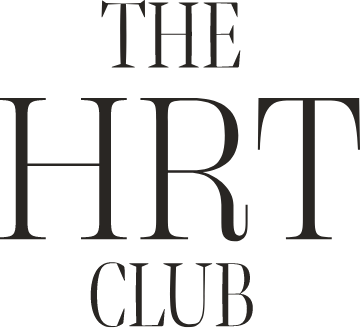Hormonal imbalance can be caused by a number of factors and is at the root of many symptoms as we age. If you suffer from any of the symptoms below, your hormones may be out of alignment.
Symptoms of Hormonal Imbalance
Hormone imbalances can cause a variety of symptoms that may affect your daily life. Below are the most common signs that it’s time to get your hormone levels checked and consider trying a hormone replacement therapy (HRT).
Hot flashes
One minute you are cool and comfortable, the next minute you are hot and sometimes sweaty. This may be a hot flash and could be related to hormonal changes.
Treatment Options Include:
Hormone replacement therapy (HRT), including estradiol and/or progesterone, or testosterone
Other prescription medications or procedures as recommended by a healthcare provider
Self-care tips include keeping your environment cool, modifying your diet (avoid coffee, alcohol, and spicy foods), or lifestyle modifications such as quitting smoking or losing weight
Night sweats
Do you sometimes wake up with your clothing or sheets soaked in sweat, even if your bedroom is cool? Night sweats are the nighttime version of hot flashes, and they’re common in menopause.
Treatment Options Include:
Hormone replacement therapy (HRT), including estradiol and/or progesterone
Other prescription medications as recommended by a healthcare provider
Self-care tips include keeping your sleeping environment cool, wearing loose or lightweight clothing, modifying your diet (avoid coffee, alcohol, and spicy foods), quitting smoking and losing weight
Vaginal dryness
Has sex become painful? Vaginal dryness could be the cause. Fortunately, there are treatments that can help.
Treatment Options Include:
Hormone replacement therapy (HRT), including estradiol and/or progesterone
Over-the-counter vaginal lubricants or moisturizers
Avoid using oils, soaps, lotions or gels that contain perfumes
Chills
Chills can be just as intense as hot flashes, but colder. They can happen at random, or sometimes follow a hot flash.
Treatment Options Include:
Hormone replacement therapy (HRT), including estradiol and/or progesterone
Other prescription medications as recommended by a healthcare provider
Self-care tips include wearing layers to warm up and cool back down easily, drinking a warm beverage, and avoiding dietary triggers such as alcohol, caffeine or spicy foods
Sleep problems
Having trouble falling asleep or staying asleep? Sleep disruptions during menopause are unfortunately common and often a result of other menopause symptoms like hot flashes and night sweats.
Treatment Options Include:
Hormone replacement therapy (HRT), including estradiol and/or progesterone
Other prescription and non-prescription medications as recommended by a healthcare provider, including sleep aids
Self-care tips include following a regular sleep schedule, keeping your bedroom a comfortable temperature and free of distractions, and avoiding dietary triggers such as alcohol, caffeine or spicy foods
Mood Swings
Do you feel like you’re on an emotional roller coaster, with dips into irritability, anxiousness, sadness or even forgetfulness that are out of character? It could be related to hormonal changes.
Treatment Options Include:
Hormone replacement therapy (HRT), including estradiol and/or progesterone or testosterone
Other prescription medications as recommended by a healthcare provider
Self-care tips include exercising, eating healthy foods, getting enough sleep, and stress-management techniques such as yoga or meditation
Weight Gain
Are you gaining weight even though you haven’t changed your diet or exercise routine? Does it seem to settle in your belly? Menopause can affect the hormones that regulate fat storage, while low testosterone can affect muscle mass. Coupled with declines in our metabolism as we age, these hormone imbalances can lead to weight gain.
Treatment Options Include:
Hormone replacement therapy (HRT), including estradiol and/or progesterone, or testosterone
Self-care tips include increasing aerobic exercise, strength training and eating healthier foods
Trouble Concentrating/Brain Fog
Are you more forgetful lately? Having a harder time concentrating at work? It could be tied to changes in your hormones.
Treatment Options Include:
Hormone replacement therapy (HRT), including estradiol and/or progesterone, or testosterone
Self-care tips include exercising (both your body and mind), eating a well-balanced diet, and getting enough sleep
Fatigue
Do you feel you just don’t have the energy that you are used to? Fatigue that gets in the way of your regular activities could be tied to changes in your hormones.
Treatment Options Include:
Hormone replacement therapy (HRT), including estradiol and/or progesterone, or testosterone
Self-care tips that raise your energy levels include exercising, following a regular sleep schedule, and taking mental breaks throughout the day
Anxiety
Do you feel more tense or fearful than normal? Are you more easily overwhelmed? Anxiety can often accompany changes in your hormones.
Treatment Options Include:
Hormone replacement therapy (HRT), including estradiol and/or progesterone or testosterone
Individual psychotherapy
Other prescription medications as recommended by a healthcare provider
Self-care tips include exercising, eating healthy foods, getting enough sleep, and stress-management techniques such as yoga or meditation
Depression
Feeling unusually down or uninterested in things you usually enjoy? Depressed moods are common during menopause and perimenopause. It’s also a sign of low testosterone.
Treatment Options Include:
Hormone replacement therapy (HRT), including estradiol and/or progesterone or testosterone
Other prescription medications as recommended by a healthcare provider
Individual psychotherapy
Self-care tips include exercising, eating healthy foods, getting enough sleep, and stress-management techniques such as yoga or meditation
Low libido
Has your sex drive slowed to a crawl? Occasional low libido is common, but if it persists over time, it could be tied to hormonal imbalances.
Treatment Options Include:
Hormone replacement therapy (HRT), including estradiol and/or progesterone, or testosterone
Individual psychotherapy, couples therapy or sex therapy
Self-care tips that reduce stress include exercising, practicing yoga or meditating
Erectile Dysfunction
If it’s more difficult to get and maintain an erection these days, you’re not alone. About half of men between the ages of 40 and 70 have experienced erectile dysfunction. If it’s happening more often, or for a few weeks or more, it could be a sign of low testosterone.
Treatment Options Include:
Hormone replacement therapy (HRT), including testosterone
Other prescription medications or procedures as recommended by a healthcare provider
Individual psychotherapy, couples therapy or sex therapy
Self-care tips include increasing aerobic exercise, limiting alcohol consumption, and quitting smoking
Muscle Mass Loss
Has your body lost some of its muscle definition? Do your regular physical activities feel harder than they used to? Muscle mass begins to decline at the age of twenty, but the rate of loss accelerates during menopause and perimenopause. It’s also a sign of low testosterone.
Treatment Options Include:
Hormone replacement therapy (HRT), including estradiol and/or progesterone, or testosterone
Self-care tips include eating a well-balanced diet that includes adequate protein, exercising and strength training
Muscle Aches/Joint Pain
Old joint injuries bothering you more? Estrogen helps to reduce inflammation. As estrogen levels decline, inflammation may increase, and we may feel more aches and pains in the morning or even after working out.
Treatment Options Include:
Hormone replacement therapy (HRT), including estradiol and/or progesterone
Over-the-counter medicines for pain relief
Self-care tips to reduce pain or inflammation include applying ice or heat therapies, getting a massage, strength training, stretching, Pilates, or yoga
Hair loss
Is your hair losing its luster and fullness? Is it falling out in larger amounts during brushing or showering? Hair loss or thinning is a natural part of growing older. In women, lower production of estrogen and progesterone can result in hair thinning. In men, however, those with low testosterone may lose body or facial hair.
Treatment Options Include:
Hormone replacement therapy (HRT), including estradiol and/or progesterone, or testosterone
Other prescription treatments such as finasteride
Over-the-counter medications such as minoxidil
Self-care tips that prevent hair breakage include avoiding hair dyes, heat styling tools, and other chemicals (including chlorine)
Join the Club and Save
Join the Club and Save
Join the Club and Save
Join the Club and Save
Join the Club and Save
Join The HRT Club
$99/YEAR
- Direct Access to Low Cost HRT & Sexual Health Treatments
- No Insurance Required
- Bioidentical and FDA-Approved Medicines
- Includes FREE Standard Shipping & Handling
*With minimum purchase of $50/order. Expedited shipping is available at a cost.

